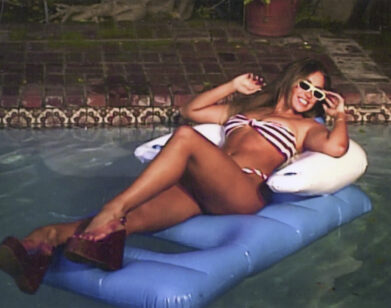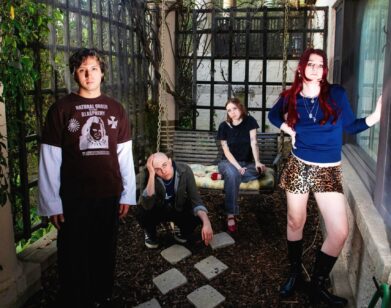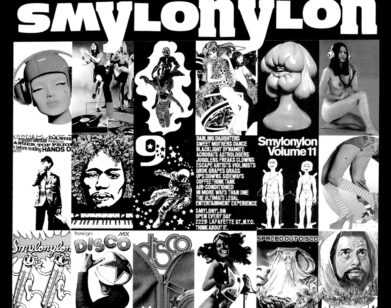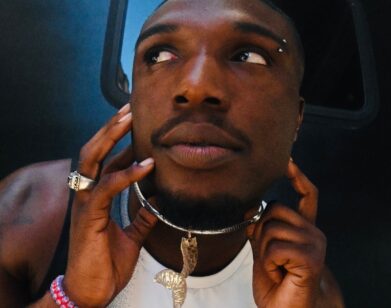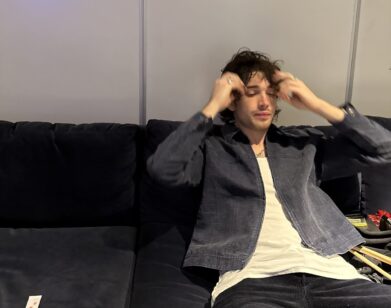If Plants and Animals Were Plants and Animals…
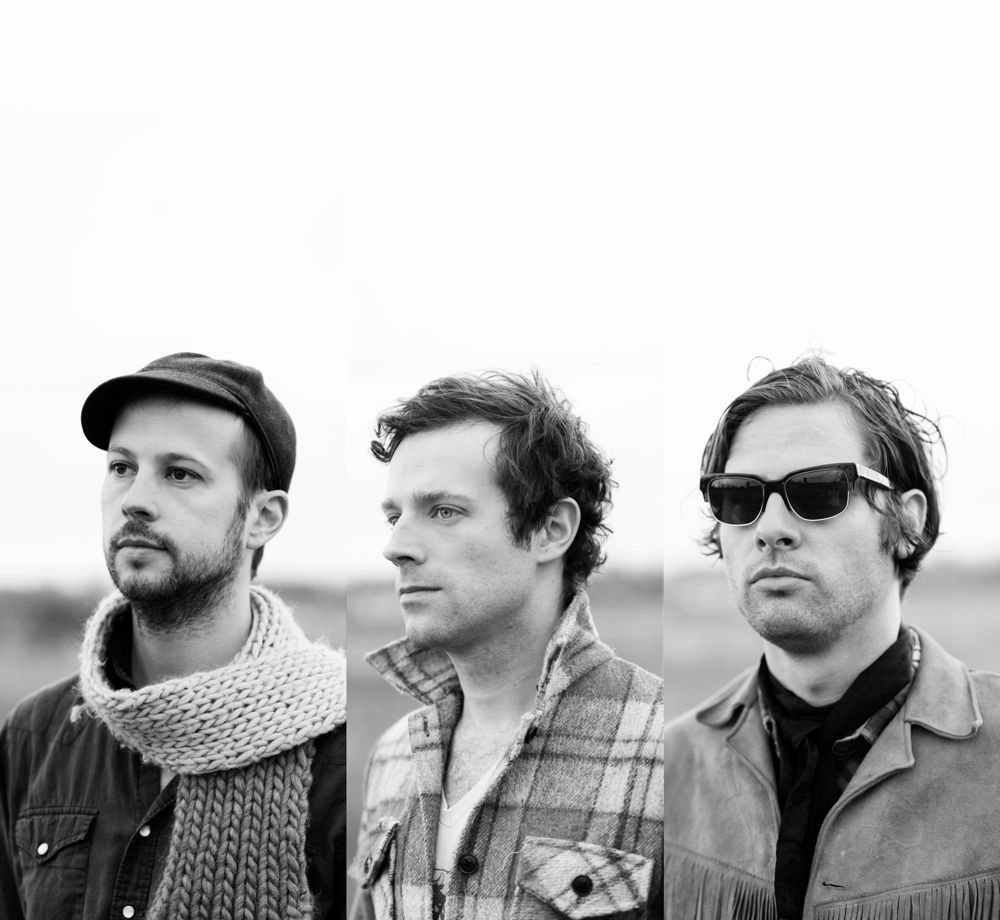
ABOVE: PLANTS AND ANIMALS
According to Plants and Animals frontman, Warren Spicer, the band’s third full-length album, The End of That, is something of a new beginning. Unlike with their previous albums, La La Land (2010) and Parc Avenue (2008), which were both written and recorded in the studio, the Canadian trio spent nearly a year on The End of That, meticulously preparing a plethora of songs before they even entered the studio. This careful consideration comes through; songs such as the slower-tempo, contemplative “Before” and the slightly 1970s-rock ‘n roll “The End of That,” really do give the impression that the band has closed a door on past experiences and is starting afresh. The End of That is an older and wiser album.
We spoke with Warren Spicer before about Plants and Animals’ new album, Bonnie Raitt, and what’s up next for the band.
EMMA BROWN: So, Warren, what most excites you about this album?
WARREN SPICER: I think there’s a real honesty to the writing and performances of this album. It feels like we got much closer to sounding the way we want. It feels like the beginning of something.
BROWN: You’ve mentioned that you spent much more time preparing for this album than your past albums. Can you elaborate on this a bit?
SPICER: We worked on the songs way more before we recorded them this time. The idea was to get to the studio and record us performing the song, not record us creating a song.
BROWN: And you recorded this album just outside of Paris…
SPICER: Yes, at a studio called La Frette. It’s owned by a man named Olivier Bloch-Lane, he lives in Paris and Montreal. He had seen our band play and really liked what we were doing and made it possible for us to record at La Frette. Picture the house the [Rolling] Stones recorded Exile on Mainstreet in, and that’s pretty much it—big old French villa with a studio in the basement.
BROWN: Did you use different rooms for different songs, or did you just set up a central studio?
SPICER: We recorded some of the record in the living room and made use of the hallways and staircase reverberation. You can hear that on the song “2010. ” We also recorded in the basement which has a much more dead sound, very dry and tight, that’s the drums on “The End of That” and “Crisis.” This record would not sound anything like this had we recorded it somewhere else, It’s a very La Frette-sounding record.
BROWN: What made you pick “Lightshow” as your first single?
SPICER: “Lightshow” has got a real Plants and Animals vibe to it—a few different parts, no real chorus, and it’s a bit of a trip to get from the start to the end. It does a good job of introducing the sound of the new record. I am back on acoustic guitar, Nic [Basque] is on electric through his ancient little amp, and Woodman [Matthew Woodley] on his big bad drums. It’s also short, and people told us that was a good thing.
BROWN: You mentioned that your lengthy preparation phase meant that you produced more songs than can fit on this album, what do you plan to do with the surplus songs?
SPICER: I think a couple will come out as bonus material. The rest are on the shelf, but we may look at them again come next record. Were planning on playing at least one of the unused songs live; it’s an eight-minute piano epic that’s really fun to play, but didn’t fit the record. It’s called “Shaky, Shaky, Shaky” to add to our three-of-the-same-word song titles.
BROWN: If you met a stranger and could play them just one song from your entire opus, which song would you pick and why?
SPICER: “HC,” because it’s only 45 seconds and playing our songs to strangers makes me nervous.
BROWN: Plants and Animals started out as an instrumental band, what caused you to add lyrics to your songs?
SPICER: I got comfortable singing. The instrumental record was a very specific kind of album. It did its thing really well, but it had limitations. I couldn’t really see being an instrumental band forever. It just didn’t connect with people the same way a voice does.
BROWN: What’s next for you and the band?
SPICER: Three months of touring north America and embracing uncertainty.
BROWN: Most embarrassing thing on your mp3 player?
SPICER: I am not really that embarrassed by the music I like—I would stick up for all of it. But you might laugh at my Bonnie Raitt collection.
BROWN: Last question: if Plants and Animals were in fact plants and/or animals, what sort of plants and/or animals would you be?
SPICER: Does it have to make sense?
BROWN: No.
SPICER: A beached whale and some seaweed. That’s what we would be.
THE END OF THAT COMES OUT TOMORROW, FEBRUARY 29. TO FIND OUT MORE ABOUT PLANTS AND ANIMALS, YOU CAN VISIT THEIR WEBSITE.

